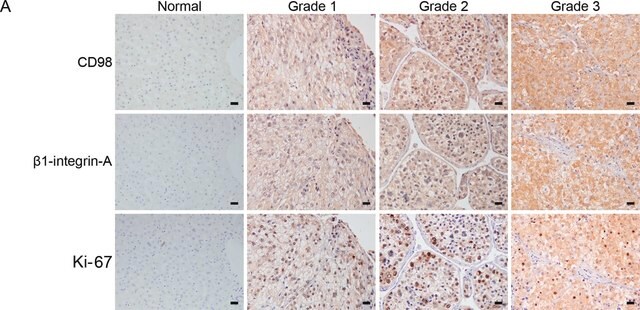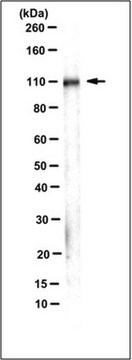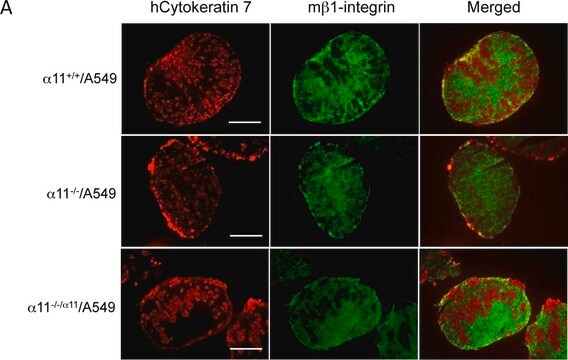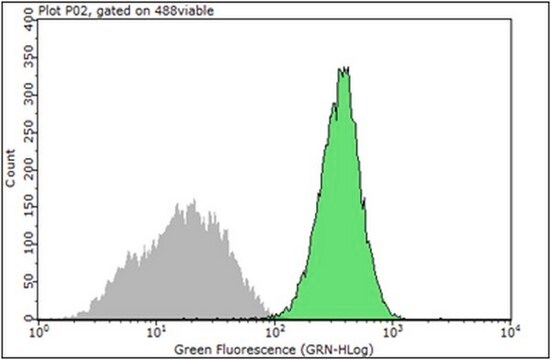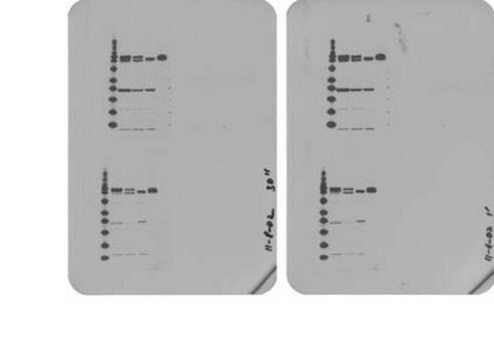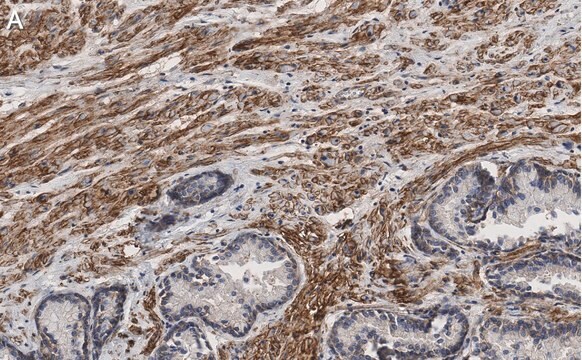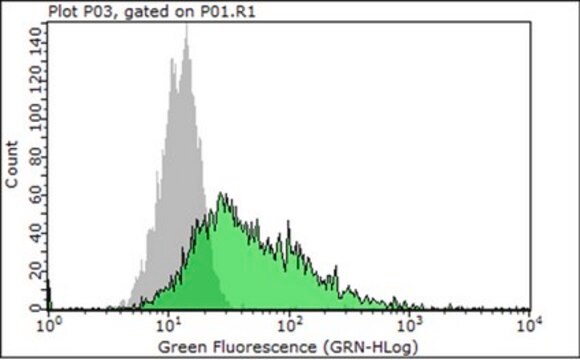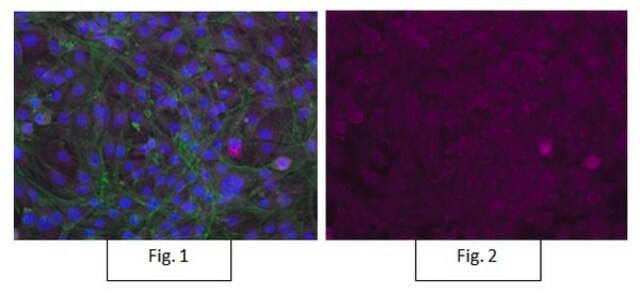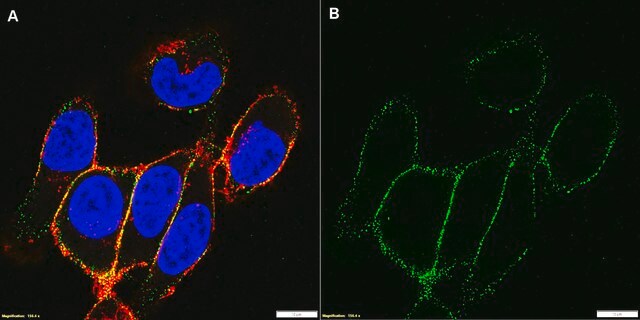MAB2247
Anti-Integrin β1 Antibody, clone 12G10
clone 12G10, Chemicon®, from mouse
Synonyme(s) :
Integrin beta-1, CD29, Glycoprotein Iia, GPIIA, Integrin VLA-4 subunit beta, Very late activation protein, beta polypeptide
About This Item
Produits recommandés
Source biologique
mouse
Niveau de qualité
Forme d'anticorps
purified immunoglobulin
Type de produit anticorps
primary antibodies
Clone
12G10, monoclonal
Espèces réactives
human
Fabricant/nom de marque
Chemicon®
Technique(s)
ELISA: suitable
cell culture | mammalian: suitable
flow cytometry: suitable
immunoprecipitation (IP): suitable
western blot: suitable
Isotype
IgG1κ
Numéro d'accès NCBI
Numéro d'accès UniProt
Conditions d'expédition
dry ice
Modification post-traductionnelle de la cible
unmodified
Informations sur le gène
human ... ITGB1(3688)
Description générale
Spécificité
Immunogène
Application
ELISA : 10 μg/mL
Western Blot: known to react with human beta 1 integrin subunit under non-reduced conditions only {Mould, 1995}.
Stimulatory to alpha5beta1 interaction with fibronectin {Mould, 1995}.
Optimal working dilutions must be determined by end user.
Cell Structure
Integrins
Description de la cible
Forme physique
Stockage et stabilité
Remarque sur l'analyse
Tonsil, human skin tissue
Autres remarques
Informations légales
Clause de non-responsabilité
Vous ne trouvez pas le bon produit ?
Essayez notre Outil de sélection de produits.
En option
Code de la classe de stockage
12 - Non Combustible Liquids
Classe de danger pour l'eau (WGK)
WGK 2
Point d'éclair (°F)
Not applicable
Point d'éclair (°C)
Not applicable
Certificats d'analyse (COA)
Recherchez un Certificats d'analyse (COA) en saisissant le numéro de lot du produit. Les numéros de lot figurent sur l'étiquette du produit après les mots "Lot" ou "Batch".
Déjà en possession de ce produit ?
Retrouvez la documentation relative aux produits que vous avez récemment achetés dans la Bibliothèque de documents.
Notre équipe de scientifiques dispose d'une expérience dans tous les secteurs de la recherche, notamment en sciences de la vie, science des matériaux, synthèse chimique, chromatographie, analyse et dans de nombreux autres domaines..
Contacter notre Service technique